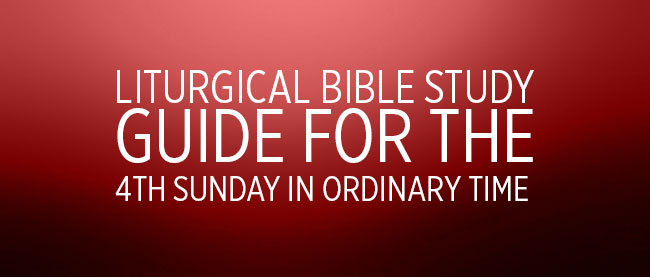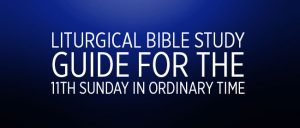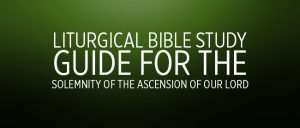1st Reading – Deuteronomy 18:15-20
Deuteronomy is structured in the form of three discourses, the second of which contains the laws proper. The first discourse (1:1-4:43) is an introduction to the book. It stresses what the book, and the entire Bible, is all about. It tells us that God in His providence and mercy is constantly watching over His people, over every single man and woman, as can be seen from the wonders He worked during the 40 years the Jews spent in the wilderness. Most important of all, this first discourse emphasizes another basic fact: Yahweh requires strict fidelity to the covenant: this was what Israel committed itself to in Sinai, to adore the one true God.
The second discourse, from which our reading for today comes, encompasses 4:44 through chapter 28. This discourse stresses the Decalogue and that God’s choice of Israel is a pure act of love on His part and that this grace must permeate the lifestyle of His Chosen People; consequently a whole series of liturgical, civil and criminal laws are given to ensure that His promises are carried out.
The third discourse (29 through the end) is a vigorous exhortation to obedience to Yahweh. Their love for Him should not be out of fear of punishment but by way of appreciation for all the gifts He has given. True wisdom consists in not exploring the hidden mysteries of God out of curiosity, but in knowing His commandments and practicing them faithfully.
To better understand today’s first reading, we will start at verse 9 and continue through the reading. It is Moses who is speaking. The question at issue here is the all-important one of the vital link between the people and God. The fundamental opposition between a nature religion, the aim of which was control and leverage on the deity (such as practiced by the pagans who occupy the Promised Land), and that of the Hebrew; who is to live by obedience to God’s saving word. Ecstatic prophecy was common to Israel and Canaan, but the end that it served was in each case profoundly different.
This is a key text regarding the institution of the office of prophet in Israel. Together with the king and the priest, the prophet is one of the great institutions of Israel; the prophet has a very important religious position and special moral authority. In the history of the Jewish people Moses is seen not only as the one who delivered Israel from slavery in Egypt, not only as the one who gave them God’s laws, but also as the first prophet and the model for all future prophets.
The role of the prophet is to monitor the status of the people’s covenantal relationship with God; to speak in the name of the Lord and proclaim the meaning and scope of past, present and future events: to remind them of the blessings and curses associated with their covenant. As Peter Kreeft says in his book The God Who Loves You, “Prophets are like fingers, not like faces. We are not meant to look at them but to the reality to which they point.”
2nd Reading – 1 Corinthians 7:32-35
Last Week we heard Saint Paul begin to answer various questions which have been asked of him. The one addressed last week and again today concerns marriage and virginity. We continue with his remarks from where we left off last week.
Gospel – Mark 1:21-28
Jesus has just started His public ministry. For the past two weeks we have heard of Him going out and recruiting disciples. New He begins to teach.





